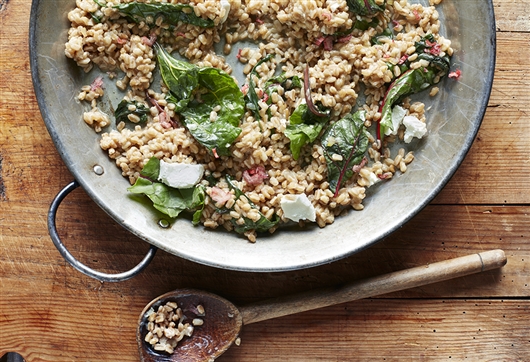'If only I could sleep better and get a little relief' is one of the most commonly uttered sentiments I hear from my patients undergoing cancer treatment. If it's not worry about their health and questions about treatment popping into their heads when the rest of the country is asleep, it can be the stimulating effects of steroids given to ease sickness, or pain and discomfort, which so often feels worse at night. Sleep deprivation can make dealing with the daytime symptoms of living with cancer much worse, with pain more difficult to get on top of and moods taking a real hit if our body doesn't get enough rest. Sometimes prescription sleeping tablets may be necessary, but over years of caring for many patients living with cancer (and in my own life, when serious illness has caused me distress), I've found that looking at the way we eat and what we eat can help give us a better chance of a few restorative hours of slumber.
Poor sleeping habits can become habitual and, like most habits, it can take a while to rewrite the script that plays in our head. Eating well (more about that later) and establishing a relaxing routine around bedtime can help. A warm bath with a calming essential oil such as lavender, or if bathing isn't possible, a foot soak in a bowl of lavender-scented water, can be enough to persuade the body to wind down, ready for rest. I love a mug of lavender milk, made with the lavender I've harvested from the garden, which you can make with cow's milk or a non-dairy alternative. Vary the amount of honey you add, depending on your sweet tooth - I like to use lavender honey when I have it in the cupboard.
Try these other tips to help you nod off and get the rest you need to heal and recover well. Also, have a look at Macmillan's information for other tips to help you sleep better.
Join our Online Community to talk to other people affected by cancer
Read more on our Community News Blog
Keep up-to-date with the blog, Nourish - eating well with cancer
Whatever cancer throws your way, we’re right there with you.
We’re here to provide physical, financial and emotional support.
© Macmillan Cancer Support 2025 © Macmillan Cancer Support, registered charity in England and Wales (261017), Scotland (SC039907) and the Isle of Man (604). Also operating in Northern Ireland. A company limited by guarantee, registered in England and Wales company number 2400969. Isle of Man company number 4694F. Registered office: 3rd Floor, Bronze Building, The Forge, 105 Sumner Street, London, SE1 9HZ. VAT no: 668265007